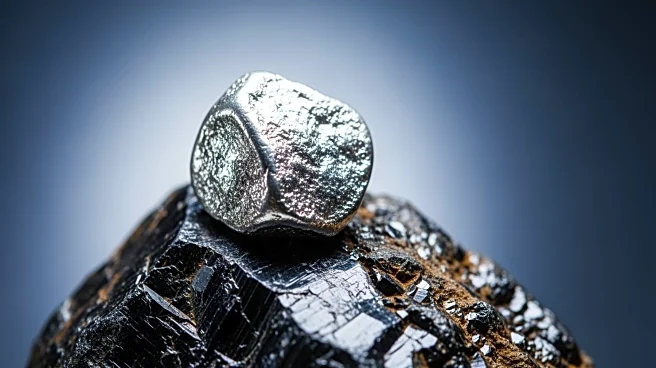Rapid Read • 7 min read
China is making significant strides in its nuclear energy program by developing self-cooling reactors, which could enhance safety and efficiency. The China Institute of Atomic Energy (CIAE) recently completed tests for a residual heat removal system for integral fast reactors (IFRs), which are designed to be meltdown-proof. This technology uses natural circulation to prevent reactor core overheating, a critical safety feature. The development of IFRs, which use liquid metals like sodium or lead as coolants, allows for higher fuel efficiency and reduced nuclear waste. China is incorporating this technology into its next-generation CFR-1000 reactors, aiming to expand its nuclear energy capabilities.
AD
China's advancements in nuclear technology could have significant implications for global energy markets and safety standards. By reducing reliance on fossil fuels, China is positioning itself as a leader in clean energy, potentially influencing international energy policies. The development of IFRs could also set new benchmarks for nuclear safety, encouraging other countries to adopt similar technologies. This move aligns with China's broader goals of increasing its clean energy capacity and reducing carbon emissions, which could impact global efforts to combat climate change.
China's focus on nuclear energy expansion is likely to continue, with further developments in reactor technology and international collaborations. The successful implementation of self-cooling reactors could lead to increased adoption of IFRs globally, influencing energy policies and safety standards. As China presents its advancements to international bodies like the International Atomic Energy Agency, other countries may follow suit, potentially leading to a shift in global energy dynamics.
AD
More Stories You Might Enjoy











